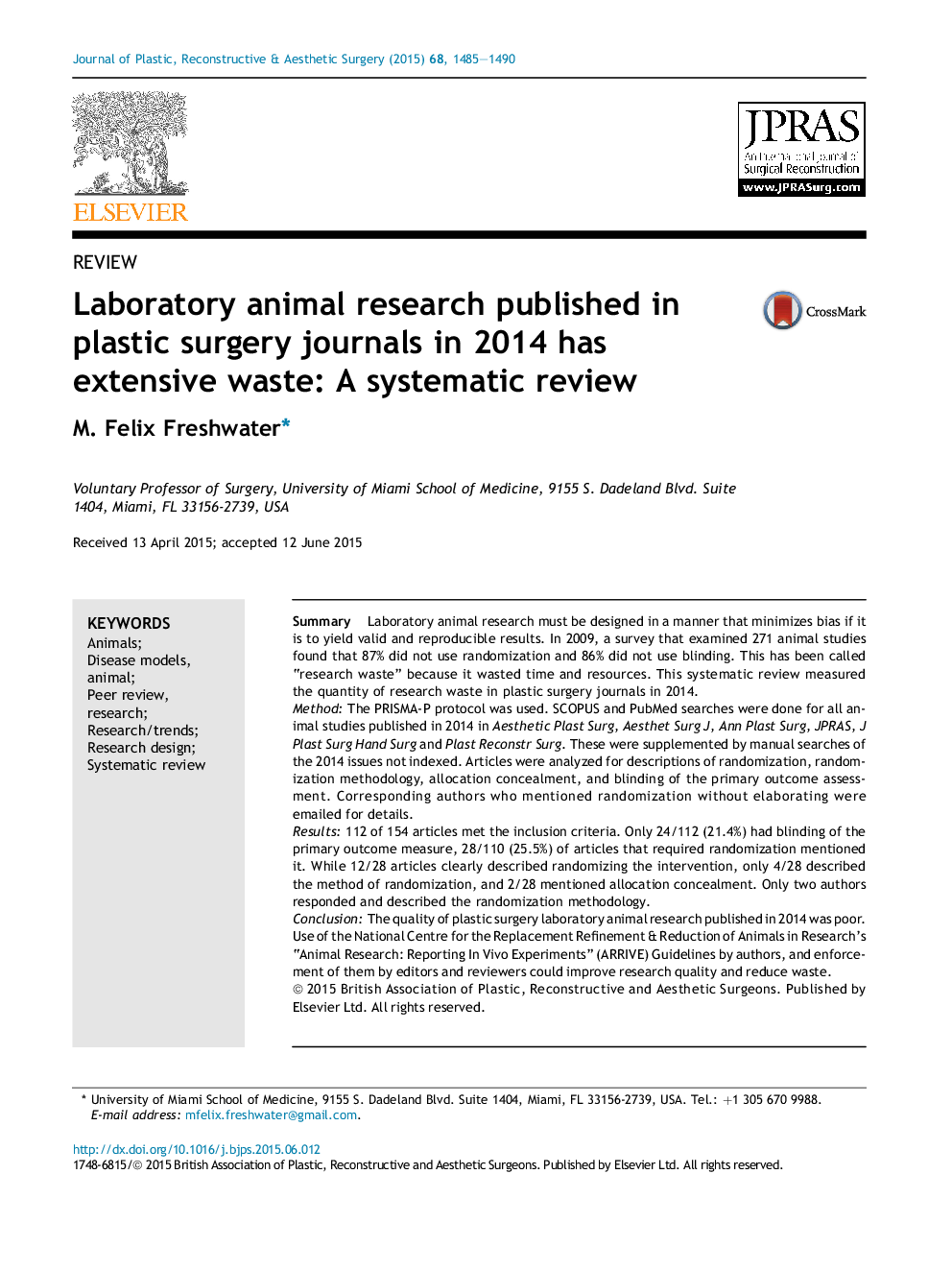| کد مقاله | کد نشریه | سال انتشار | مقاله انگلیسی | نسخه تمام متن |
|---|---|---|---|---|
| 4117044 | 1270291 | 2015 | 6 صفحه PDF | دانلود رایگان |
SummaryLaboratory animal research must be designed in a manner that minimizes bias if it is to yield valid and reproducible results. In 2009, a survey that examined 271 animal studies found that 87% did not use randomization and 86% did not use blinding. This has been called “research waste” because it wasted time and resources. This systematic review measured the quantity of research waste in plastic surgery journals in 2014.MethodThe PRISMA-P protocol was used. SCOPUS and PubMed searches were done for all animal studies published in 2014 in Aesthetic Plast Surg, Aesthet Surg J, Ann Plast Surg, JPRAS, J Plast Surg Hand Surg and Plast Reconstr Surg. These were supplemented by manual searches of the 2014 issues not indexed. Articles were analyzed for descriptions of randomization, randomization methodology, allocation concealment, and blinding of the primary outcome assessment. Corresponding authors who mentioned randomization without elaborating were emailed for details.Results112 of 154 articles met the inclusion criteria. Only 24/112 (21.4%) had blinding of the primary outcome measure, 28/110 (25.5%) of articles that required randomization mentioned it. While 12/28 articles clearly described randomizing the intervention, only 4/28 described the method of randomization, and 2/28 mentioned allocation concealment. Only two authors responded and described the randomization methodology.ConclusionThe quality of plastic surgery laboratory animal research published in 2014 was poor. Use of the National Centre for the Replacement Refinement & Reduction of Animals in Research's “Animal Research: Reporting In Vivo Experiments” (ARRIVE) Guidelines by authors, and enforcement of them by editors and reviewers could improve research quality and reduce waste.
Journal: Journal of Plastic, Reconstructive & Aesthetic Surgery - Volume 68, Issue 11, November 2015, Pages 1485–1490
